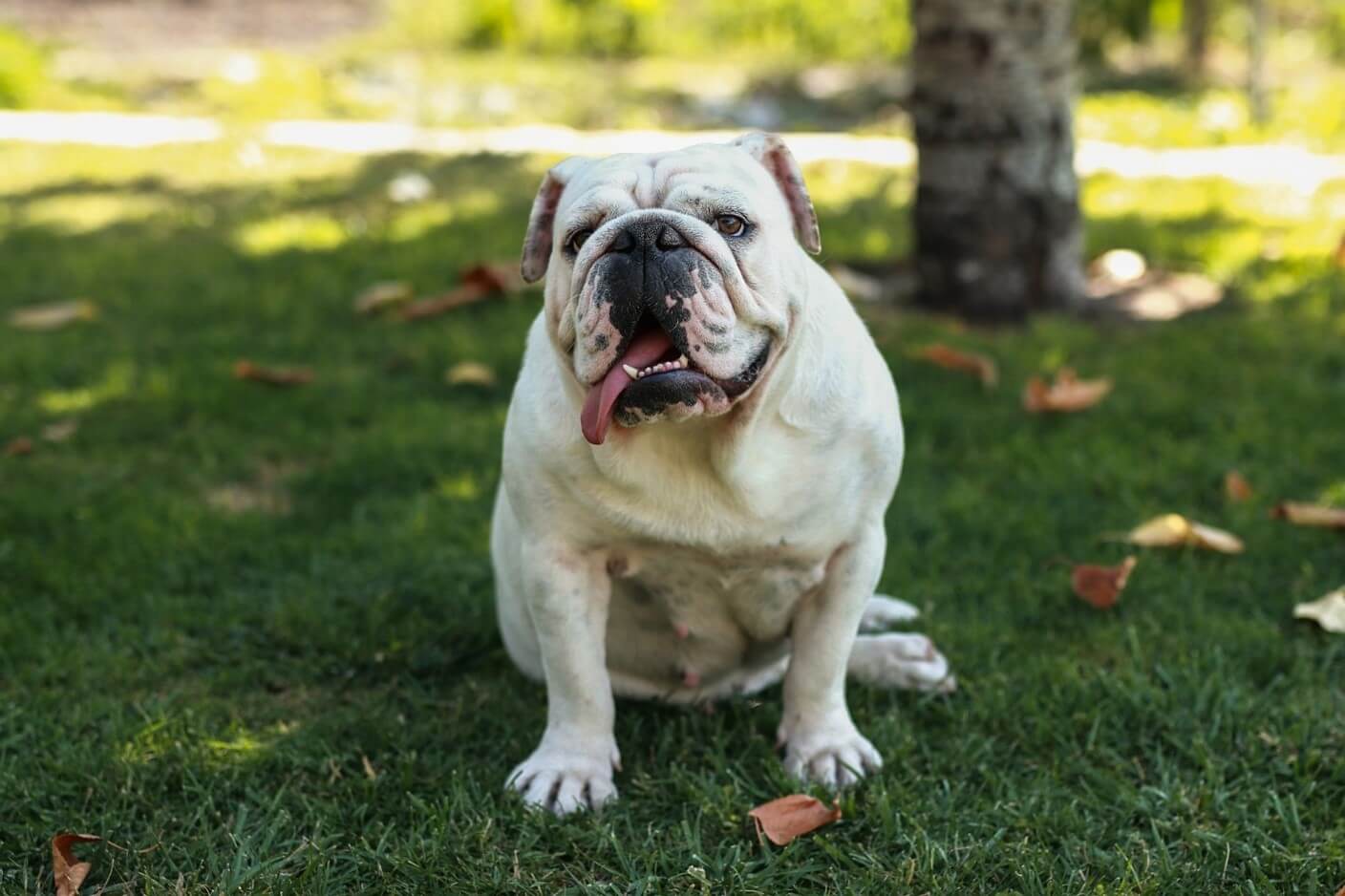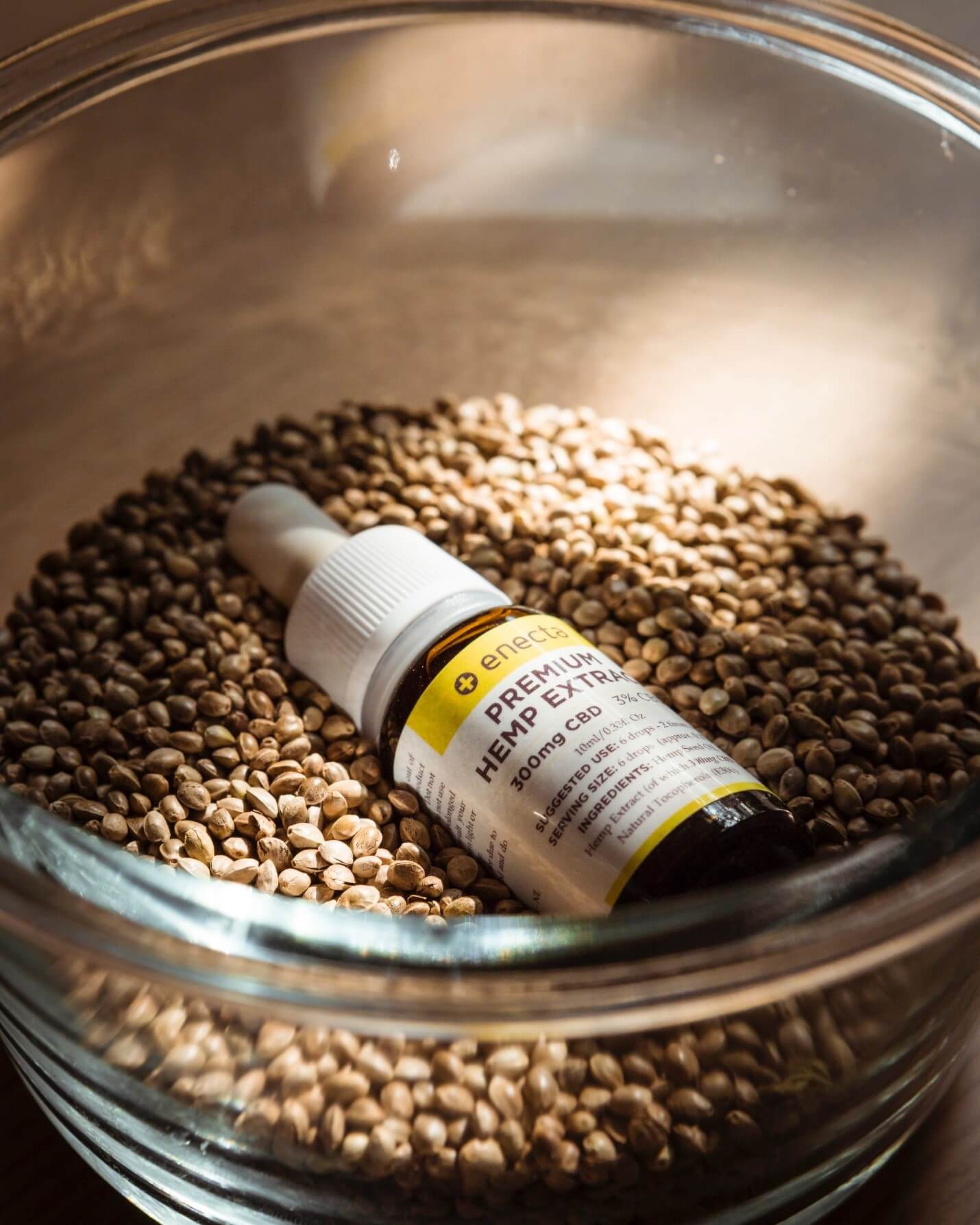CBD For Weight Gain In Dogs

Cannabidiol can be found in both the hemp plant and marijuana. Hemp is rich in the cannabinoid while marijuana is more prevalent in the psychoactive cannabinoid THC. THC creates the euphoric sensation experienced when using marijuana, but CBD has no inebriating characteristics. It can only create a sense of calm or relaxation.
Manufacturers source their CBD oil products using hemp in order to eliminate the THC content because THC is not good for dogs. In working with a canine's endocannabinoid system, CBD assists in regulating many crucial body functions.
These include maintaining a moderate, healthy appetite for weight control, reducing conditions that can potentially lead to a gain, and addressing the possible resulting problems excesses can bring.
CBD For Excessive Weight Gains In Dogs
CBD oil boasts the capacity to help with appetite management for canines. It can not only promote loss for dogs who are obese, but it can stimulate hunger in pups who stop eating for underlying reasons.
The compound is an assistive component in the process to help resolve the weight issue, but the first step in helping the dog is to determine the root cause for the excess. This ensures there is not an underlying medical reason that requires the vet to provide a particular care plan, such as thyroid issues.
The vet will help with determining an appropriate dose for the cannabidiol. The doctor can also help you find brands of a higher quality. The substance is one part of the equation in developing a healthy appetite. It works to:
- Help with the fat burning process
- Achieve healthy energy gains
- Work towards enhanced mood creating a desire for more activity due to a happier attitude
- Boosts metabolism
- Decrease inflammation that's typically responsible for mobility limitations
- Helps to regulate levels of blood sugar
- Helps with cardiovascular health
If between you and the vet you decide to use the products, you'll need to choose an administration method that puppy will find appealing.
There are a number of forms you can find online for examples, but the oils or tinctures would likely be ideal. These can be mixed in water or food.
Treats will add unnecessary calories. Topicals aren't appropriate in this situation. And dogs are a little too smart for tablets. These usually end up spit out on the floor.
Once puppy is taking the substance, that's only one aspect of working towards resolving the condition. The vet will also ensure that puppy goes on a healthy nutrition plan and that you implement a regular fitness regimen for your dog. These are vital for a successful result. So how do you know your canine has a weight issue to begin with?
How Do You Know Your Dog Is Obese?
For you to help your canine manage their appetite, you need to recognize when your dog has a problem. A good indication is to compare photos of a healthy version of your dog's breed to a current picture of your dog. Your puppy doesn't need to be rail thin as some pictures indicate, but you don't want your pup to have excess roundness or thickness.
With the regular vet checkup, you will also be advised if the pup is considered to be overweight, which is typically between 10 to 20% heavier than what would be considered ideal. Over 20% notes as being obese.
Obesity Causes For Canines
For some dog breeds, genetics are a factor with obesity. In other cases, it's a combination of various lifestyle conditions.
- Genetics As A Factor: The breeds that tend to carry excessive weight include Spaniels, Dachshunds, Terriers, Beagles, and Labrador Retrievers. That doesn't mean that these specific breeds have to be overweight, and it isn't an indication that other breeds won't be obese. These are simply the ones genetically prone compared to other dogs.
Recognizing these breeds allows pet parents to become proactive in helping these pets manage a healthy body and maintain appetite control before there is an issue.
- Progressing Age As A Contributor: With age for your dog comes the likelihood for added pounds because of less mobility due to reduced energy levels or the potential development of arthritis. Exercise is an important component in maintaining a healthy body.
Even if a dog develops age-related issues like arthritis, compounds like CBD oil can help with the symptoms to keep the animal mobile, and pet parents need to keep their dogs active each day. The exercise might need to be modified, but never stopped.
If your dog is on any type of medications, you might want to discuss the possibility with the vet of these causing the obesity issues. These side effects might be a reason for the vet to consider an alternative medical treatment to replace that particular medicine.
The potential health concerns relating to the amount of gains being put on the dog's body versus why the medication that's causing the side effect is needed will determine whether the medication is switched. But, either way, appetite management will be implemented.

Final Thought
If your dog is only beginning to get a little bit “pudgy,” and he's on a nutritious diet regimen with a healthy daily exercise routine, it's wise to check with the vet for a potential medical-related issue causing the unusual excess pounds. A thyroid problem can benefit from CBD oil, but will need the addition of a medical treatment plan for complete management.
For pets that are carrying excessive pounds to the point of obesity and there are no underlying conditions found by the vet, cannabidiol has the potential for helping to manage appetite and improve body function with an improved activity level, enhanced mood, and fat burning leaving the dog much lighter.
But you will need to work with the vet to establish a healthy food and fitness program to work with the compound if you want to achieve the optimum wellness for your dog. Just like with humans, if you don't do the work too, you won't see positive results.




Leave a Reply